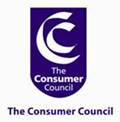Energy Brokering Brief – September 2011
 Fuel Poverty
Fuel Poverty
The Consumer Council
Introduction
Energy prices in Northern have increased sharply since 2008. The increases have represented a considerable blow to Northern Ireland households, likely causing a rise in fuel poverty levels close to 50 per cent up from 44 per cent in 20091.
Energy brokering schemes have been tried successfully by governments, industry, businesses and other organisations in the United States, Great Britain and some European Union countries to lower energy prices as part of their overall fuel poverty strategy.
Energy Brokering People Power Report - feasibility study2
In 2010 Bryson Charitable Group, the Consumer Council and the Northern Ireland Housing Executive carried out joint research on the feasibility of introducing energy brokering schemes in Northern Ireland.
The research carried out for the report showed that energy users in Great Britain, the European Union and the United States are benefiting from lower energy prices through energy brokering schemes. The report concluded that the energy market in Northern Ireland allows for the development of local energy brokering schemes in Northern Ireland. The report presents various types of energy brokering schemes. These are:
- Preferred Supplier Arrangements/Affinity Deals
Under a Preferred Supplier Arrangement or Affinity Deal a housing body or large business will support a specific energy supplier, promoting the supplier to residents or employees. The energy supplier would in turn offer special services or benefits. These include discounted tariffs or assistance toward energy efficiency improvements in the dwelling.
- Bulk or Aggregated Energy Buying
Bulk buying consists of single purchases of large quantities of energy or fuel at a reduced cost. A deal is negotiated directly with an energy supplier on behalf of residents or employees. The tariff or price achieved will depend on the amount of energy purchased.
Examples of Energy Brokering schemes
- The Northern Ireland Housing Executive are currently examining how they could broker cheaper energy for their tenants.
- In Northern Ireland apparently some large industrial users have negotiated special energy deals for their employees based around the organisation’s energy usage;
- Dundee City and Aberdeen City Councils have set up Preferred Supplier Arrangements with energy companies, whereby the energy company pays a commission payment to the Council for every new customer signed up. The income is used to provide energy efficiency measures/fuel poverty measures.
- Woon Energie brokers lower energy prices for housing tenants in the Netherlands.
- In Pennsylvania, USA a co-operative was formed to bulk purchase home heating oil.
How could Government in Northern Ireland support this?
- Government Departments could link their own energy purchasing into leveraging a better deal for domestic consumers in Northern Ireland under one contractual tariff arrangement.
Briefing Prepared by: John French Contact Phone No: 028 9067 4804
Alternative Contact: Paulino Garcia Contact Phone No: 028 9067 4836
1 Source: Housing Condition Survey 2009.
2 www.nihe.gov.uk/energy_brokering_report_-_feasibility_study.pdf



